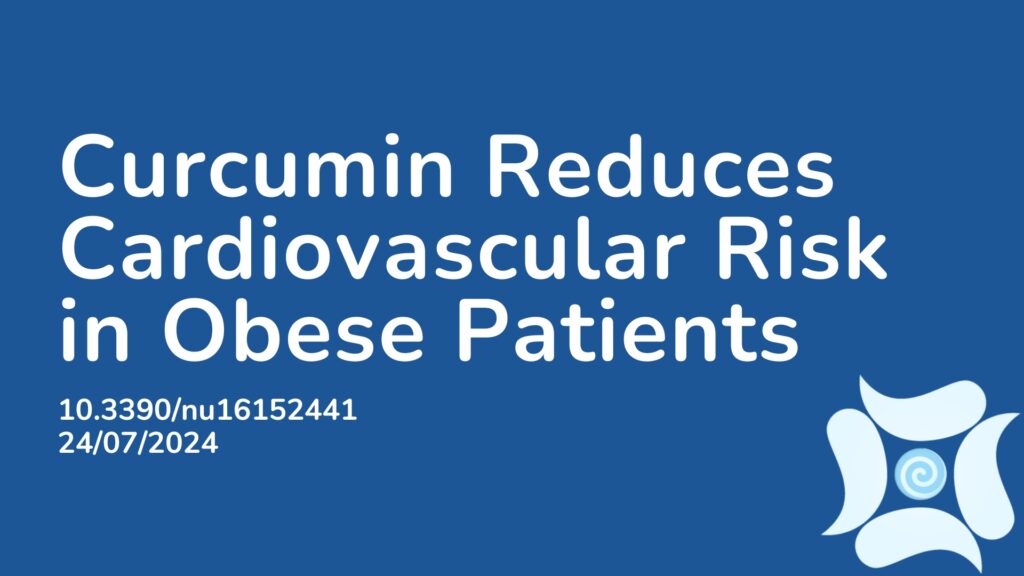Summary:
Curcumin, the active compound extracted from turmeric root, is renowned for its strong anti-inflammatory properties and overall health benefits. These properties have been shown to help mitigate cardiovascular issues, such as atherosclerosis, which involves the buildup of plaque in the arteries. This study is a randomized, double-blind, placebo-controlled trial that investigated curcumin’s effectiveness in reducing plaque buildup in obese individuals with type 2 diabetes. The study involved 227 participants diagnosed with type 2 diabetes, who had their atherosclerosis risk measured through heart monitoring factors and various metabolic markers, such as cholesterol levels. After 12 months, participants taking curcumin showed significant improvements in heart monitoring factors and lower levels of unhealthy cholesterol. Additionally, levels of C-reactive protein and other inflammatory markers were significantly reduced in the curcumin group. These findings lead the researchers to conclude that curcumin supplementation notably decreased the risk of cardiac complications and atherosclerosis in obese patients with type 2 diabetes.
Abstract:
Curcumin, derived from turmeric root, exhibits notable anti-inflammatory effects. These anti-inflammatory properties might also provide advantages in reducing cardiovascular complications, such as atherosclerosis. This study aimed to evaluate the efficacy of curcumin in reducing the risk of atherogenesis in obese patients with type 2 diabetes. The study employed a randomized, double-blind, placebo-controlled trial design with 227 participants diagnosed with type 2 diabetes. The parameters used to assess atherogenic risk reduction included pulse wave velocity and metabolic profiles, including low-density lipoprotein cholesterol and small dense low-density lipoprotein cholesterol. Measurements were recorded at baseline and at 3-, 6-, 9-, and 12-month intervals. After 12 months, participants receiving curcumin exhibited a significant reduction in pulse wave velocity (p < 0.001). This group showed significantly reduced levels of cardiometabolic risk biomarkers, including low-density lipoprotein cholesterol and small dense low-density lipoprotein cholesterol, all with p values less than 0.001. High-sensitivity C-reactive protein, interleukin-1 beta, interleukin-6, and tumor necrosis factor-alpha were also significantly lower in the curcumin group, with p values less than 0.001. The curcumin intervention significantly reduced pulse wave velocity and improved cardiometabolic risk profiles. These findings suggest that curcumin treatment may effectively reduce atherogenic risks in type 2 diabetes patients with obesity.
Article Publication Date: 24/07/2024
DOI: 10.3390/nu16152441



